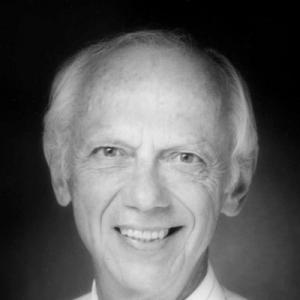Ecologist and Conservation Scientist Dr. William Lidicker to be Featured on CUTV News Radio
BERKELEY, CALIFORNIA, UNITED STATES, July 18, 2018 /EINPresswire.com/ -- Human beings tend to believe we live in a kind of splendid isolation in which we are in charge, having conquered and dominated this planet and everything else needs to get out of the way. But everyone is doing their job, from the tiniest bug to you and me. We need to care for our planet for humans to persist in a sustainable way, and that means allowing the other creatures we share this world with to persist as well. That’s conservation.
Dr. William Lidicker is a retired professor of integrative biology at the University of California-Berkeley. A celebrated figure in ecology, mammalogy, and conservation science, Dr. Lidicker has spent more than 60 years in the field.
“Many people conceive of conservation as being about enjoying nature for its aesthetic beauty or morality,” says Dr. Lidicker. “That's fine, but it's certainly not going to solve our problems.”
The field of conservation science is dedicated to applying scientific solutions to conservation problems. The problem is the future of humanity. If we can’t create a sustainable future, the alternative is pretty grim.
Dr. Lidicker began his tenure at Berkeley in 1957 as instructor in zoology and assistant curator of mammals.
“At that time, ecology itself was very new, at least in academia,” recalls Dr. Lidicker. “Our zoology department hired an ecologist and that was considered revolutionary at the time. Today, ecology is a big part of our understanding of how life works and how humans function on the planet. Ecology and conservation science have since become one in the same in many ways.”
According to Dr. Lidicker, it wasn't until the late 1980s that traditional biology departments, especially in highly ranked research oriented universities, recognized conservation science as a legitimate component of basic biological research. This transition paved the way for human ecology (or conservation biology) to flourish in the best universities.
“It's increasingly difficult to be optimistic, but you have to be to a certain degree, because pessimism leads to inaction and inaction leads to more problems,” says Dr. Lidicker. “The projections are not pretty. But there is some hope or optimism. If we get together and do what we can, we can slow down the process and eventually stop it. It's going to require a lot of cooperation around the world. Maybe climate change will force us to be cooperative. It might be the stimulus we need to get it together.”
CUTV News Radio will feature Dr. William Lidicker in an interview with Doug Llewelyn on July 20th at 1pm EDT.
Listen to the show on BlogTalkRadio.
If you have a question for our guest, call (347) 996-3389.
Lou Ceparano
CUTV News
(631) 850-3314
email us here

